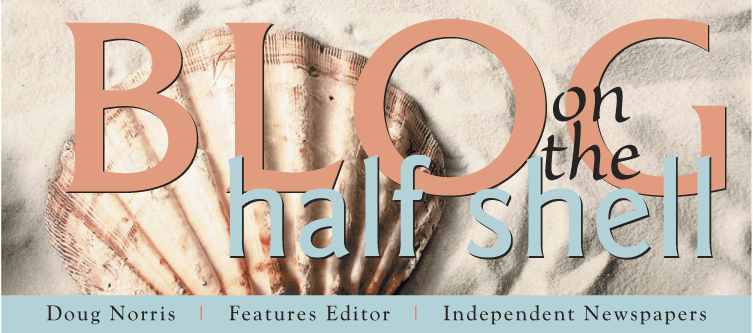Many Rhode Islanders suffer from obsessive, compulsive license plate disorder. Symptoms include: 1) A belief that status in this state hinges, not on the kind of car you drive, but on having the lowest possible number on the license plate hanging under it. 2) A belief that the world wants to know that you are the RI-BADBOY or RI-HOTCHIK. 3) A belief that your closest relative didn't truly love you if he/she didn't bequeath the rights to their plate number or vanity message.
Our license plate angst is historic. The state's official colors are blue and white, but from 1972 to 1980 Rhody's license plate colors were black and white - because most of the state legislators were Providence College men's basketball fans. But things are better now. From a graphic design standpoint, few states can match the blue wave on the current edition of the Rhody plate. And in recent years, legislators have offered up the state plate to local charities. The R.I. Community Food Bank raised money with a Mr. Potato Head license plate. Save the Bay followed up with an environmentally friendly Osprey plate. Now lawmakers have introduced legislation allowing the state Division of Motor Vehicles to issue a special license plate to benefit Providence WaterFire. An extra $40 surcharge would support the popular bonfire-world music carnival, with half the money going to the state's general fund and the other half to WaterFire organizers.
The mottoes may change (just as "Discover Rhode Island" gave way to "The Ocean State") but the mores never will. How does a state solve a $434 million budget deficit? One license plate at a time.
Tuesday, June 17, 2008
Monday, June 16, 2008
Goodnight and farewell
There are better things in the world to do on weekends than watch television. But if you found yourself in front of the idiot box on Sunday mornings or Saturday afternoons, Tim Russert and Jim McKay made sure that you weren't wasting your time. In a profession overpopulated with talking heads, white noise, agenda journalism and baa blah blog sheep, both broadcasters, who died within days of one another, brought civility, fairness and just the right touch of poetry or storytelling to their reporting.
Russert was one of the best interviewers in the business, tough and tenacious, but nonpartisan and never malicious. He did what so many journalists don't: held people accountable for their words by digging up past quotes and pointing out contradictions and hypocrisy in their statements. The fact that he was an unabashed blue-collar Buffalo guy made Americans everywhere, including here in perpetually irrelevant Rhode Island, feel that their voices mattered as much as the power elite in Washington.
McKay, wearing that horrid trademark ABC yellow jacket, elevated sports journalism to the level of news, making it a vital part of our daily cultural discussion. As host of ABC's Wide World of Sports, and the network's coverage of the Olympics, he guided Americans through our growing pains with sports not named baseball, football, basketball and hockey. I was a 10-year-old when Munich happened, and was riveted to McKay throughout those Games. His remarkable ability to convey humanity yet maintain dignity and professionalism while describing horrifying acts of terrorism left an indelible impression, and had a calming influence, in the same way that Walter Cronkite's teary reporting of the JFK assassination is recalled by a slightly older generation.
With the passing of Russert and McKay, Americans have lost more than a couple of great journalists and good men. We've lost a reason to tune in on Sunday mornings and Saturday afternoons.
Russert was one of the best interviewers in the business, tough and tenacious, but nonpartisan and never malicious. He did what so many journalists don't: held people accountable for their words by digging up past quotes and pointing out contradictions and hypocrisy in their statements. The fact that he was an unabashed blue-collar Buffalo guy made Americans everywhere, including here in perpetually irrelevant Rhode Island, feel that their voices mattered as much as the power elite in Washington.
McKay, wearing that horrid trademark ABC yellow jacket, elevated sports journalism to the level of news, making it a vital part of our daily cultural discussion. As host of ABC's Wide World of Sports, and the network's coverage of the Olympics, he guided Americans through our growing pains with sports not named baseball, football, basketball and hockey. I was a 10-year-old when Munich happened, and was riveted to McKay throughout those Games. His remarkable ability to convey humanity yet maintain dignity and professionalism while describing horrifying acts of terrorism left an indelible impression, and had a calming influence, in the same way that Walter Cronkite's teary reporting of the JFK assassination is recalled by a slightly older generation.
With the passing of Russert and McKay, Americans have lost more than a couple of great journalists and good men. We've lost a reason to tune in on Sunday mornings and Saturday afternoons.
Subscribe to:
Comments (Atom)

